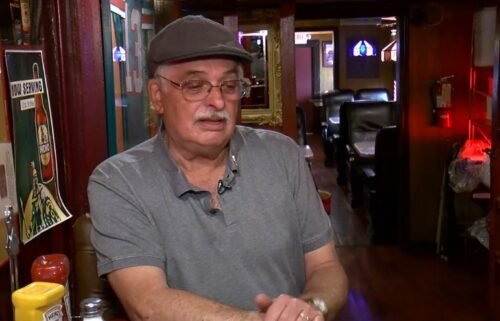Prosecution rests, defense begins in ex-cop’s trial for Floyd death
MINNEAPOLIS, Minnesota — Prosecutors rested their case Tuesday at the murder trial of former Officer Derek Chauvin after 11 days of testimony and a mountain of video depicting George Floyd’s final moments, opening the way for the defense to present its side.
Chauvin’s lawyer has argued that the now-fired white officer did what he was trained to do and that Floyd died because of his illegal drug use and a heart condition, not because of Chauvin pinning him to the pavement last May.
During the prosecution side of the case, the wrenching video of Floyd gasping for air was played for the jury along with other bystander footage and police body-camera video of the 46-year-old Black man’s slow-motion death.
Law enforcement experts and veteran Minneapolis police officials, including the police chief himself, testified that Chauvin’s knee on Floyd’s neck for as much as 9 1/2 minutes was excessive and contrary to his training and departmental policy.
And medical experts testified that Floyd died of lack of oxygen because his breathing was constricted as police held him down on his stomach, his hands cuffed behind his back and his face jammed against the ground.
Defense attorney Eric Nelson hasn’t said whether Chauvin will take the stand. Testifying could open him up to devastating cross-examination but could also give the jury the opportunity to see any remorse or sympathy on the officer’s part.
Prosecutors effectively wrapped up their case on Monday with George Floyd’s younger brother Philonise, 39, alternately smiling and tearing up as he recalled Floyd, followed by testimony from a use-of-force expert who said Chauvin’s actions were clearly unreasonable.
Seth Stoughton, a professor at the University of South Carolina School of Law, judged Chauvin’s actions against what a reasonable police officer in the same situation would have done, and repeatedly found that Chauvin did not meet the test.
“No reasonable officer would have believed that that was an appropriate, acceptable or reasonable use of force,” Stoughton said of the way Floyd was held down.
He said, too, that the failure to roll Floyd over and render aid “as his increasing medical distress became obvious” was unreasonable.
He said it was unreasonable as well to think that Floyd might harm officers or escape after he had been handcuffed to the ground. And in yet another blow to Chauvin’s defense, Stoughton said a reasonable officer would not have viewed the yelling bystanders as a threat.
The matter of what is reasonable carries great weight: Police officers are allowed certain latitude to use deadly force when someone puts the officer or other people in danger. But legal experts say a key question for the jury will be whether Chauvin’s actions were reasonable in those specific circumstances.



